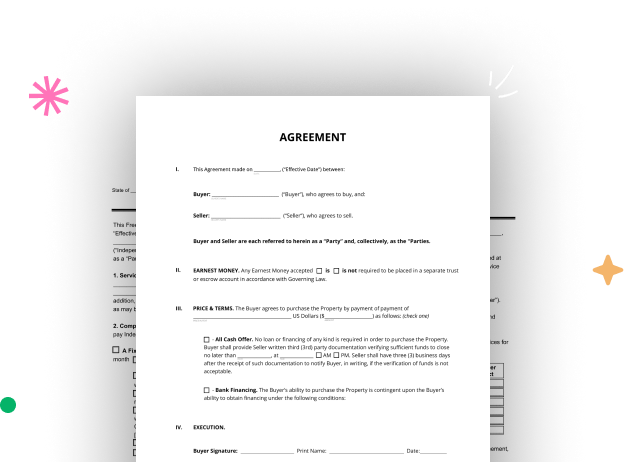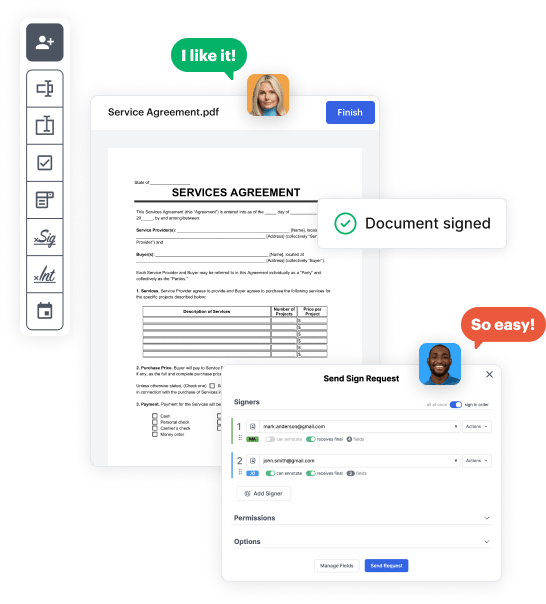

Begin by setting up a free DocHub account using any offered sign-up method. Just log in if you already have one.
Try out the entire collection of DocHub's advanced features by signing up for a free 30-day trial of the Pro plan and proceed to build your Vermont Residential Lease Agreement.
In your dashboard, hit the New Document button > scroll down and hit Create Blank Document. You’ll be redirected to the editor.
Utilize the Page Controls icon indicated by the arrow to toggle between different page views and layouts for more flexibility.
Explore the top toolbar to place document fields. Insert and format text boxes, the signature block (if applicable), embed images, etc.
Organize the fillable areas you incorporated per your desired layout. Customize each field's size, font, and alignment to make sure the form is user-friendly and polished.
Save the completed copy in DocHub or in platforms like Google Drive or Dropbox, or craft a new Vermont Residential Lease Agreement. Distribute your form via email or utilize a public link to engage with more people.